
Blepharoplasty in London
Blepharoplasty in London with Dr Julian De Silva provides precise eyelid rejuvenation using advanced, minimally invasive techniques that reduce bruising and downtime, performed by a facial-only cosmetic surgeon with over 20 years’ specialist experience.
What Is Blepharoplasty?
Blepharoplasty, also known as eyelid surgery or an eyelid lift, is one of the most commonly performed facial cosmetic procedures. It rejuvenates the eye area by reshaping excess skin, muscle and prolapsing fat that accumulate with age or due to genetics. When carried out by an experienced facial plastic surgeon, it provides natural, long-lasting results with a typically swift recovery and minimal risk. As a leading specialist in blepharoplasty in London, Dr De Silva offers both upper and lower eyelid surgery.

Blepharoplasty at a Glance
Surgery Time
1-3 Hours
Hospital Stay
Outpatient
Anaesthetic
Twilight Sedation
Time Off Work
1 Week
Driving
1 Week
Exercise
6 Weeks
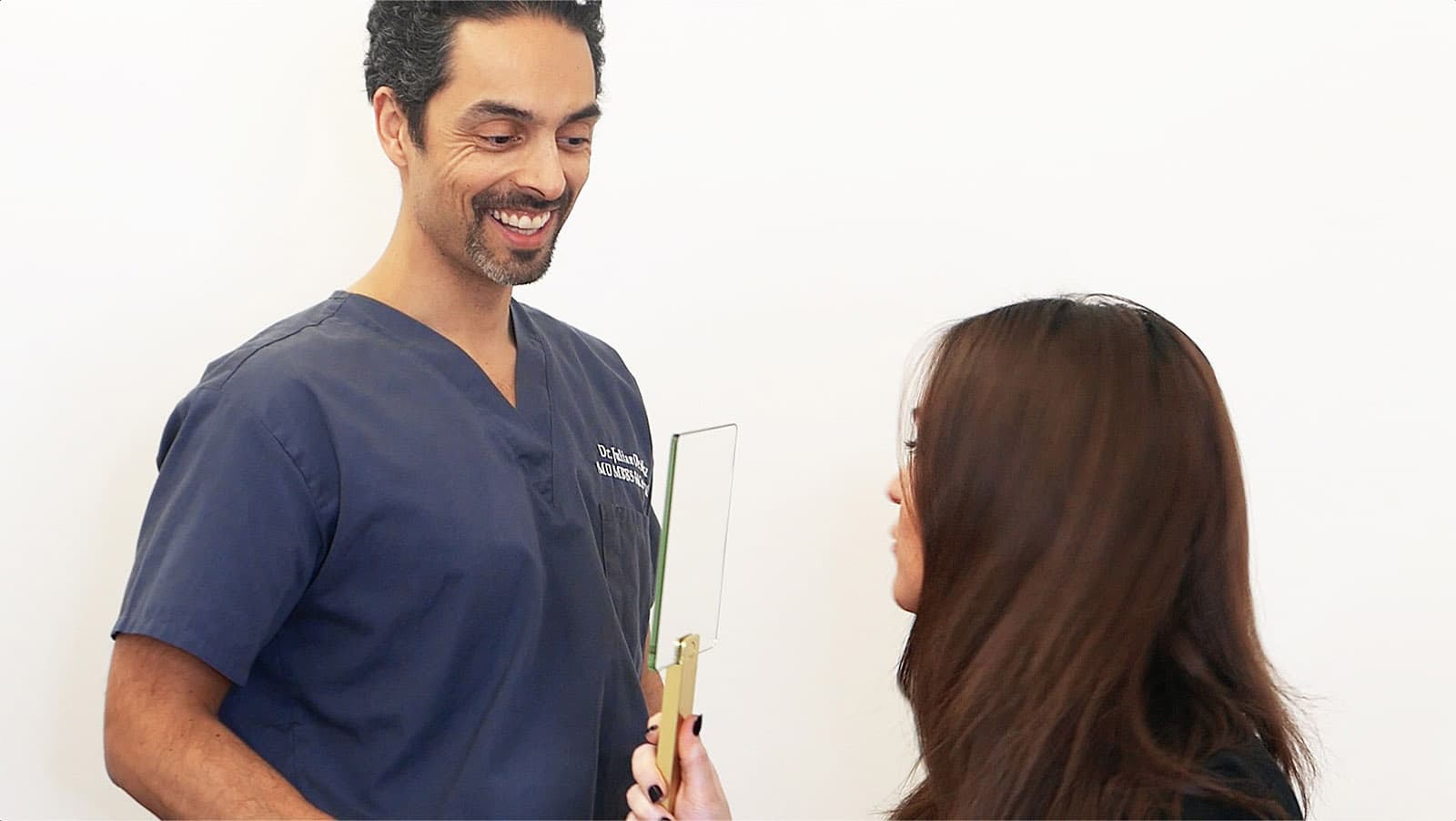
Twilight Sedation: Increased Safety and Reduced Downtime
To avoid the risks of general anaesthesia and the feeling of grogginess and nausea associated with the downtime, Dr De Silva uses twilight sedation. This ensures that the patient can breathe naturally during their eyelid surgery and their recovery time is smoother.
Featured In








View Our Blepharoplasty Patient Results
View our real patient transformations after eyelid surgery in London.

In her early 50s, this patient achieved a result that took 10–20 years off her appearance. Dr. De Silva combined advanced techniques like fat transfer, state-of-the-art laser resurfacing, and regenerative medicine for a truly transformative outcome.

In her 40s, this patient was tired of looking tired. Dr. De Silva performed a scarless lower blepharoplasty with fat transfer and laser resurfacing. The result: a refreshed, youthful, and natural appearance—with no visible signs of surgery.

In his 80s, this patient felt his tired appearance was affecting his work. After a full medical assessment, Dr. De Silva performed upper and lower blepharoplasty with fat transfer and CO2 laser. Just 6 weeks later, he’s enjoying a noticeably refreshed and more youthful look.

In her early 50s, this patient achieved a result that took 10–20 years off her appearance. Dr. De Silva combined advanced techniques like fat transfer, state-of-the-art laser resurfacing, and regenerative medicine for a truly transformative outcome.

In her 40s, this patient was tired of looking tired. Dr. De Silva performed a scarless lower blepharoplasty with fat transfer and laser resurfacing. The result: a refreshed, youthful, and natural appearance—with no visible signs of surgery.

In his 80s, this patient felt his tired appearance was affecting his work. After a full medical assessment, Dr. De Silva performed upper and lower blepharoplasty with fat transfer and CO2 laser. Just 6 weeks later, he’s enjoying a noticeably refreshed and more youthful look.

Why Choose Dr De Silva for Blepharoplasty in London?
Selecting a surgeon for eyelid surgery requires absolute confidence in their technical skill and understanding of eyelid anatomy. Blepharoplasty is a procedure where differences of less than a millimetre are visible, and outcomes depend on precision, experience and specialist training. Dr Julian De Silva offers his signature natural blepharoplasty technique, created from the innovative expertise that sets him apart.
He is a recognised contributor to the scientific development of modern blepharoplasty, authoring more than 30 peer-reviewed papers and book chapters, including work on eyelid tightening techniques, ptosis correction and minimally invasive approaches.
“I am dedicated to advancing the pioneering techniques I have developed over the years to offer my blepharoplasty patients surgery results that minimise tissue trauma, allowing most patients to return to normal activity within a week, with a significantly reduced risk of complications.”
— Dr Julian De Silva
Specialist Expertise in Eyelids and Facial Surgery
Dr De Silva’s practice is dedicated solely to facial cosmetic surgery, with a background in ophthalmic surgery that enables detailed assessment of eyelid function, dry eye risk and visual health. Few cosmetic surgeons have this dual training.
Advanced Techniques Trained in Los Angeles and New York
He is the only UK cosmetic surgeon to have completed advanced fellowship training in both Los Angeles and New York, the centres where modern scarless and micro-incision eyelid techniques were developed. These methods allow structural correction with minimal trauma and no external scarring.
Pioneer of Stitch-Free Tissue Glue in Eyelid Surgery
Dr De Silva conducted the only gold-standard randomised controlled trial demonstrating the effectiveness of fibrin tissue glue as a replacement for stitches in eyelid surgery. This innovation reduces swelling, speeds recovery and improves precision in tissue handling.
CQC-Accredited, Specialist-Led Harley Street Clinic
Dr De Silva operates from a fully CQC-accredited, consultant-led surgical facility on Harley Street, one of the most regulated and respected medical districts in the world. Patients benefit from stringent safety protocols, a dedicated surgical team and purpose-built operating theatres designed specifically for facial procedures.
Trusted For His Millimetric Approach
Dr De Silva trained in microscopic surgery before cosmetic surgery. In micro-surgery, millimetres make the difference between success and failure. Using the same principles of microsurgical finesse and meticulous detail, Dr De Silva can achieve natural-looking blepharoplasty results.

Discover Our Patient Video Diaries
Uncover what it is really like to undergo a blepharoplasty in London with Dr De Silva

Dr De Silva’s Signature Blepharoplasty Technique
Rather than simply removing tissue, Dr De Silva uses advanced fat-repositioning and volume-restoration techniques to maintain softness and restore youthful contour around the eyes. Subtle asymmetries between the eyes are analysed and corrected using micro-surgical adjustments developed through years of dedicated practice. Every procedure is adapted to the patient’s anatomy rather than following a standardised approach.

Depending on whether the upper, lower or both eyelids require correction, Dr De Silva uses a customised plan based on eyelid anatomy, brow position and facial balance.
Upper eyelid incisions are placed within the natural crease for a concealed result. Lower eyelid surgery may be performed through a hidden internal incision, avoiding visible marks and enabling highly accurate fat repositioning.
Dr De Silva uses advanced micro-cannula fat transfer to restore natural eyelid–cheek volume with smooth, controlled placement and long-lasting results. When brow support or upper-face lifting is needed, a 3D telescopic camera provides precise visualisation through minimal access points, avoiding the larger incisions used in traditional techniques.
To reduce downtime, Dr De Silva uses tissue-adhesive glue (ARTISS), proven in his randomised controlled trial to minimise bruising, swelling and the need for stitches. Recovery can be further improved with CO₂ laser resurfacing to refine periocular skin and regenerative treatments such as PRP, which help reduce bruising and enhance healing.
Our patented twilight sedation technique gently guides you into a natural sleep, allowing you to breathe on your own, feel no pain and wake up quickly without the grogginess of general anaesthetic. With fewer side effects, faster recovery and unmatched safety, it is the preferred choice for patients seeking facial surgery with a smoother, calmer experience. This is why patients from around the world choose Dr De Silva.

What to Expect From Eyelid Surgery
The procedure may be completed only on the upper eyelids, the lower eyelids, or both concurrently. Commonly, blepharoplasty may be combined with tightening of the lower eyelid tendon (canthopexy or canthoplasty) or rejuvenation of the lower eyelid skin (laser treatment or skin peels) or volume restoration (e.g. fat transfer) to give the best natural results.
Initial Consultation
During the initial consultation, patients benefit from a detailed evaluation of eyelid function, dry eye risk and facial harmony. Dr De Silva will discuss your aesthetic and functional concerns and goals, analyse your medical history and help set realistic expectations for your surgical outcome. A second consultation will be scheduled closer to your surgery date to confirm and adjust your plan.
Day of Surgery
All surgery takes place in our Harley Street CQC-regulated practice. You will be advised to arrive a couple of hours before your scheduled surgery to settle in and go through any pre-op procedures. Dr De Silva will go through the selected medical plan and prepare you for surgery. Depending on the complexity of your procedure, surgery takes between 1-3 hours. In most cases, thanks to the twilight sedation method, patients come around within 30 minutes after surgery and can leave an hour after coming to.
Follow-up Appointment
Dr De Silva’s team provides dedicated follow-up care, with daily check-ins during the first two weeks. This attentive approach ensures comfort and enables early detection of any concerns for prompt treatment. You may also be asked to assist in in-person follow-up appointments to assess the real results of the healing process.
Read Our Surgery Reviews

Dr De Silva’s Eyelid Surgery Methods
Dr De Silva performs a conservative blepharoplasty that preserves the natural architecture of the eyelid by using tissue-sparing techniques and avoiding unnecessary trauma to the intricate anatomy of the eyelids. This prevents the surgical signs of complicated blepharoplasty, such as eyelid retraction or a change in natural eyelid shape. Depending on your features and aesthetic goals, Dr De Silva may select one of these techniques for your surgery.
Upper Blepharoplasty
Upper blepharoplasty addresses excess skin and fat on the upper eyelids, lifting and smoothing the area. This procedure rejuvenates the eyes, reducing sagging and improving the overall appearance of the eyelid.
Lower Blepharoplasty
Lower blepharoplasty targets under-eye bags and puffiness by removing or repositioning fat. It also tightens loose skin, reducing wrinkles and dark circles, leading to a fresher, more youthful look around the eyes.
Lateral Canthoplasty
Lateral canthoplasty reshapes the outer corners of the eyes to create a more lifted and almond-shaped appearance. Often performed alongside other eyelid surgeries, it enhances the overall contour of the eyes.
Ethnic Blepharoplasty
Ethnic blepharoplasty is tailored to individuals of Asian or other ethnic backgrounds. It focuses on creating natural-looking eyelid creases while maintaining unique ethnic characteristics, improving eyelid appearance without altering identity.
Male Blepharoplasty
Male blepharoplasty addresses signs of ageing around the eyes, such as drooping eyelids or under-eye bags, while maintaining a masculine look. The procedure preserves a strong, defined eye contour while rejuvenating the area.
Revision Blepharoplasty
Revision blepharoplasty corrects or improves previous eyelid surgeries. It may address issues such as asymmetry, excess skin, or unsatisfactory results from earlier procedures, helping to achieve a more natural and refined appearance.
What Can Blepharoplasty Treat?
Changes around the eyes can make you look tired or older and may affect confidence, makeup application and how you feel in social or professional settings. If creams, non-surgical treatments or even previous eyelid surgery have given limited improvement, blepharoplasty with Dr De Silva offers a definitive solution for a range of common concerns, including:
Hooded or Drooping Upper Eyelids
Excess skin on the upper lids creates heaviness, a tired appearance, or difficulty applying makeup. In some cases, it can obstruct vision.
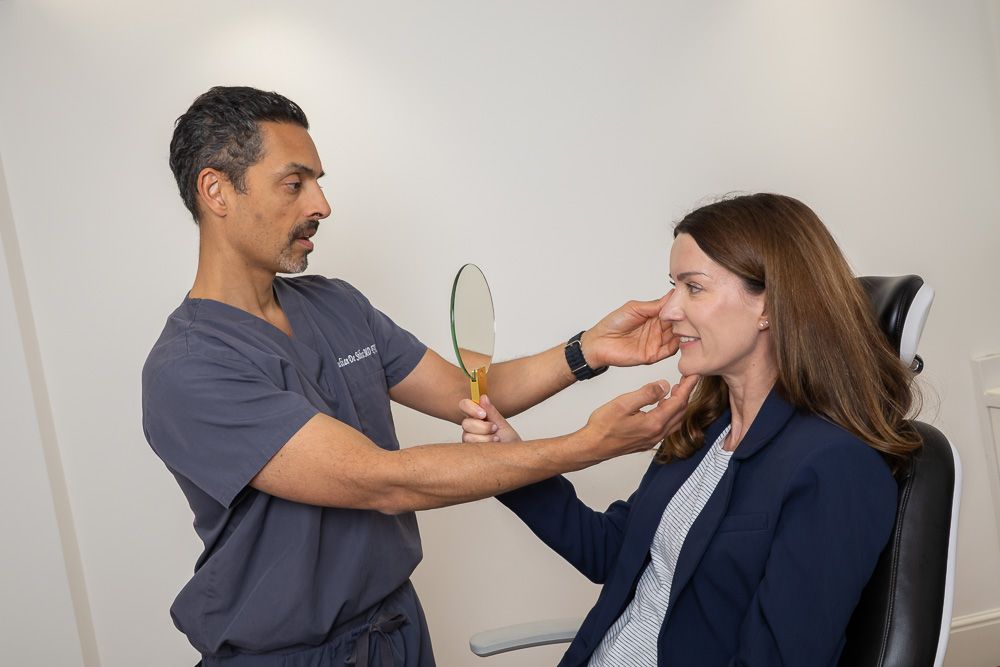
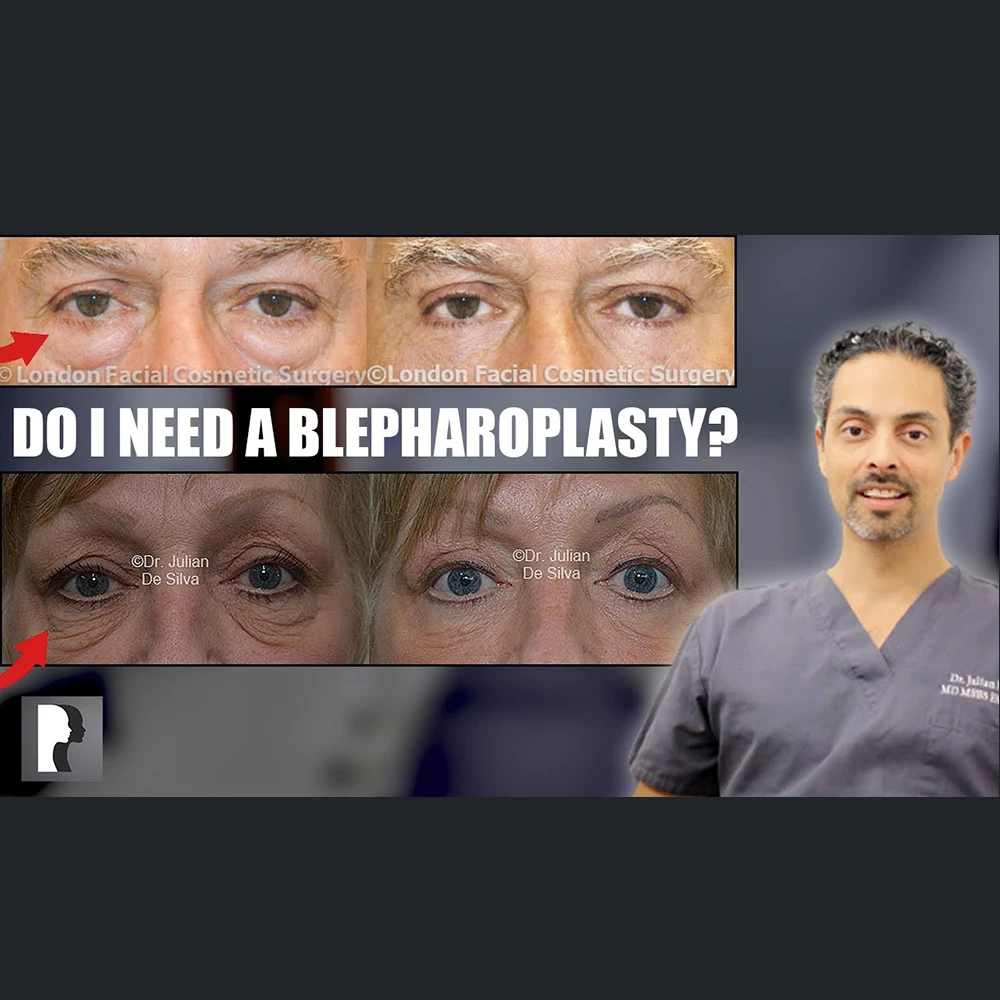
Who Is a Good Eyelid Surgery Candidate?
Ideal candidates for blepharoplasty include:
- Those with excess upper eyelid skin affecting their field of vision.
- Individuals with puffiness or under-eye bags that create a tired or aged appearance.
- People concerned about fine lines or wrinkles around the eyes that add years to their look.
- Those with a family tendency toward extra skin or fat around the eyelids.
- Patients in good overall health, with a positive mindset and clear goals for the outcome.
- Individuals with realistic expectations who understand both the potential benefits and limitations of the procedure.
What Is Blepharoplasty Recovery Like?
Recovery after eyelid surgery is generally uncomplicated, and most patients experience only mild discomfort that settles within 24–48 hours. Dr De Silva’s approach focuses on reducing tissue strain around the eyes, which helps limit bruising and swelling from the outset. Many patients require little or no pain medication, and simple measures in the first few days, such as icing the eyelids, resting, and sleeping with the head elevated, make a noticeable difference in early healing.
To further support recovery, Dr De Silva provides a structured aftercare programme that may include regenerative treatments such as platelet-rich plasma (PRP), oxygen therapy and LED light therapy. These methods help reduce inflammation, improve skin healing and shorten visible downtime.
A Typical Timeline
Every patient heals at a slightly different pace, but with Dr De Silva’s techniques and comprehensive guidance, recovery is faster, more comfortable and produces natural, long-lasting results.
Ice packs recommended; mild swelling and bruising; avoid strenuous activity.
Stitches (if used) removed; most bruising reduced; light makeup may be applied to conceal residual marks.
Many patients return to work and social activities; continued reduction in swelling.
Fit to drive, exercise lightly and resume normal routines.
Residual swelling continues to settle; eyelid contours become more refined.
Final results emerge as the eyelids fully settle and the skin smooths.
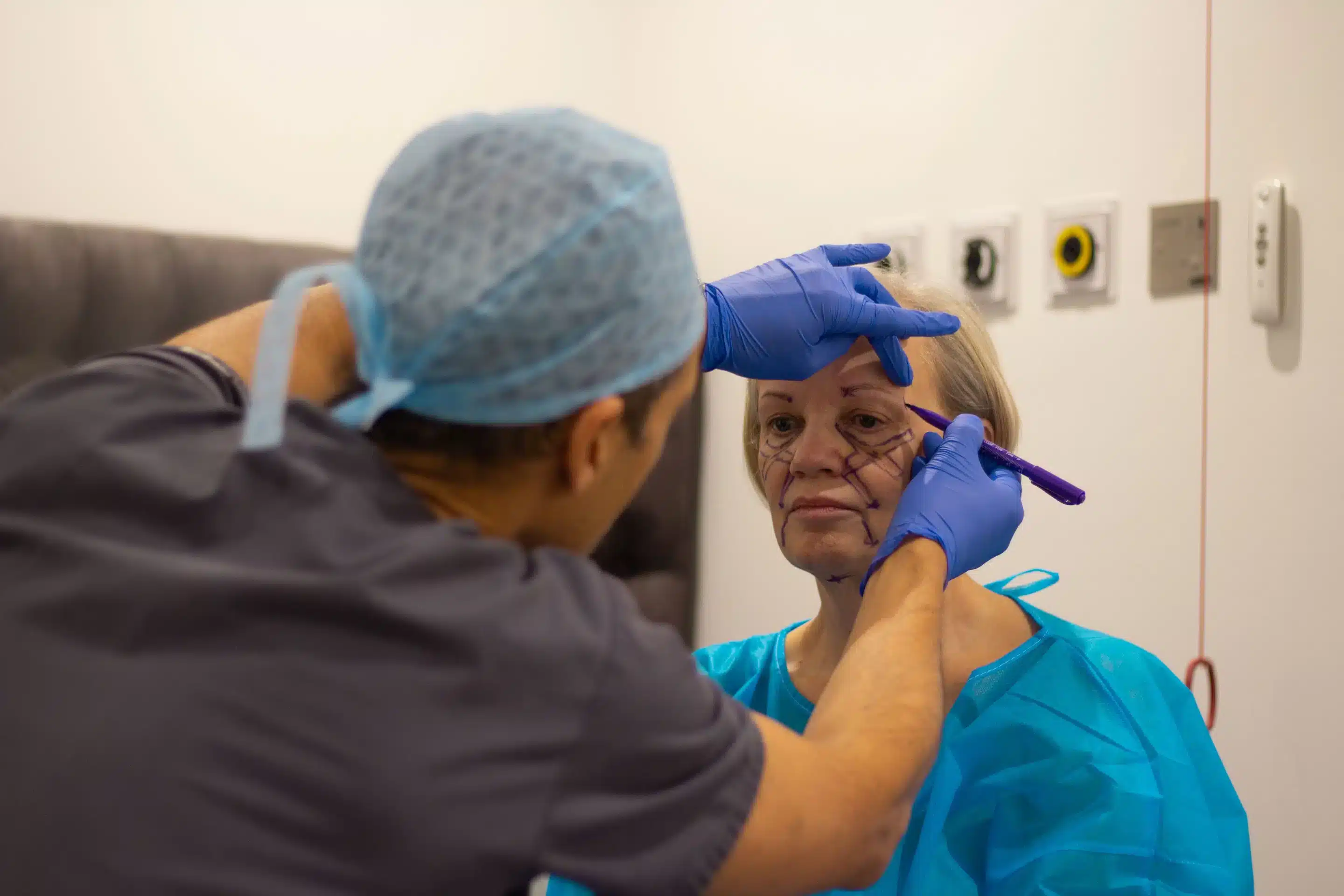
Possible Blepharoplasty Surgery Risks
One of the most important factors responsible for the success of surgery is the surgeon. In Dr De Silva’s hands, complications are uncommon, with swelling and bruising being the most common aspects of recovery.
- Pain or discomfort is uncommon and resolves within 24 hours. Infection is very rare, and the gold standard is prophylactic antibiotics to protect against infection.
- Dr De Silva avoids the side effects of general anaesthesia (deep vein thrombosis and allergies) by using safer sedation anaesthesia.
- Two rare and serious complications are eyelid retraction and damage to vision. Dr De Silva has never had a patient of his own have these complications. However, he takes multiple levels of precautions to avoid these issues in the first place.
Can Blepharoplasty Be Combined With Other Techniques?
Blepharoplasty is often performed alongside complementary facial procedures to achieve balanced, natural-looking results. When appropriate, Dr De Silva combines eyelid surgery with treatments that address ageing changes across the upper, mid and lower face.
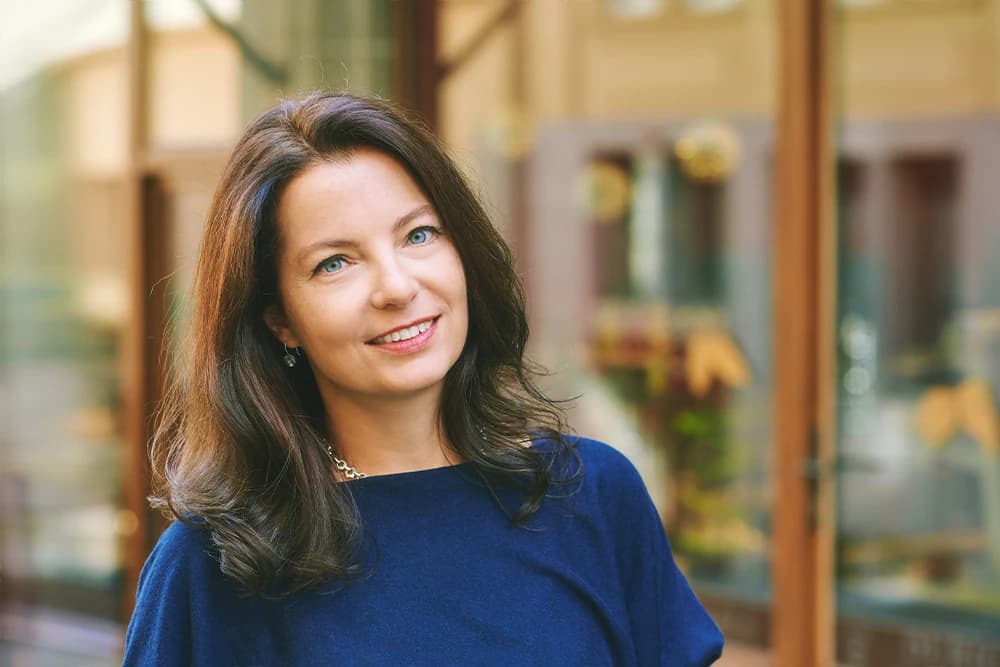
Upper Third of the Face:
- Brow or forehead lift
- Upper facial anti-wrinkle treatments
- Skin resurfacing for fine lines

Middle Third of the Face:
- Fat transfer or volume augmentation to the cheeks
- Mid-face lifting where structural support is required
- Laser or resurfacing treatments for lines and texture changes

Lower Third of the Face:
Considering Blepharoplasty in London? Contact Us
If you are exploring eyelid surgery to address puffiness, hooded lids or a tired appearance, consulting a surgeon with dedicated expertise is essential. As one of the leading specialists in blepharoplasty in the UK, Dr De Silva offers a precise, evidence-based approach focused on natural, long-lasting results.
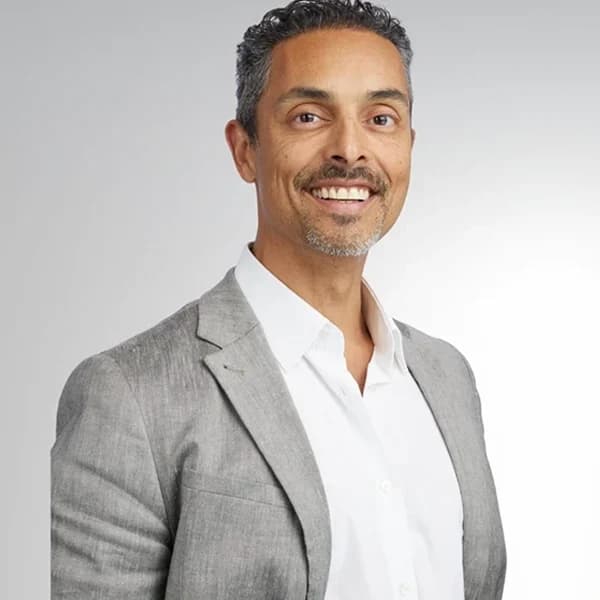
Dr. Julian De Silva is a renowned facial cosmetic surgeon at Harley Street, London, specializing in facelift, blepharoplasty, and rhinoplasty. Known for natural-looking results, he has treated top celebrities and uses advanced technology for fast recovery. Dr. De Silva is also a recognized author and educator in aesthetic surgery.
Frequently Asked Questions
In the UK, particularly on London’s Harley Street, the cost of blepharoplasty varies based on several factors, including the surgeon’s expertise, the extent of the procedure (whether it's upper, lower, or both eyelids), and the specific clinic or facility chosen. Typically, prices range from around £2,000 to £6,000, with upper and lower blepharoplasty often costing more. Additional costs may include consultation fees, anaesthesia, and post-operative care, all of which contribute to the final price. Patients need to ensure that the chosen surgeon is highly qualified and transparent about costs to ensure both safety and quality results.
The surgery generally causes mild ache or discomfort which settles within less than 48 hours, and the surgery is not regarded as painful. Most of Dr De Silva’s patients require minimal or no analgesia after blepharoplasty. Usually over the counter mild analgesia is sufficient to reduce the discomfort (e.g. Paracetamol or Tylenol).
Patients are able to have upper blepharoplasty under local anaesthesia alone, sedation or general anaesthesia. Dr De Silva has used all of these for his patients for more than 10 years, Sedation Anaesthesia offers the advantage of a more comfortable experience and faster recovery. Blepharoplasty may also be completed under local anaesthesia, however, the eyelids are sensitive and delicate and the use of sedation is a useful adjunct for surgery. For best natural results, eyelid surgery is often combined with other procedures such as fat grafting and skin resurfacing, with these additional procedures, light sedation is generally preferred. General anaesthesia is not a requirement of blepharoplasty and is associated with more recovery and potential side effects can be avoided. Dr De Silva takes time to advise each patient on the best type of anaesthesia for them. His team have pioneered the use of faster recovery sedation, aka twilight anaesthesia in London, UK and has been awarded a patent for their innovative sedation anaesthesia technique.
Upper Blepharoplasty Scar at 6 weeks: All scars are initially slightly pink in colour and lumpy and bumpy in appearance. Over a period of weeks to months, the colour returns to normal and the scar smoothes out. Dr De Silva takes care to hide scars in natural lines and creases and avoid scars wherever possible. Issues with scars are relatively rare and occur in less than 1%. Key is the detail, Dr De Silva does not use dissolvable stitches in this delicate area, as these can result in more visible scars afterwards.
Lower Blepharoplasty at 6 weeks: No scar is visible. Dr De Silva prefers to avoid scars in lower eyelid surgery by hiding the scars and completing the surgery on the inside of the eyelid. There are a small proportion of patients who may not be suitable for this technique however each patient’s surgery must be tailored to the individual to give the best possible natural-looking result.
Increased droopiness of the upper eyelids is a common change with increasing age. It is frequently a result of ageing of the eyelids and increased laxity in the soft tissues. Non-surgical treatment options for droopiness of the upper eyelids include lifestyle changes (healthy sleep, reduced stress), the use of wrinkle injections in the forehead area, limited skin tightening with radiofrequency or laser resurfacing. However non-surgical options are usually of only modest effect with a short and limited improvement. Only a surgical correction will improve the appearance after the changes are more readily apparent.
There is no specific age limit for blepharoplasty. Key to a successful blepharoplasty is your general health and fitness. If you have any underlying medical conditions such as high blood pressure, it is important to check and control with appropriate medication.
An assessment of your general medical health and your specific eyelids is important to ensure safety and to guide surgical planning to obtain the best result. Often there may be additional factors to consider with increasing age, these can include dry eyes, eyelid laxity and droopy eyelids (termed ptosis), which may require additional treatments at the same time of surgery to ensure a successful result.
Blepharoplasty will not correct changes in the skin quality including pigmentation, discolouration or wrinkles. The procedure may be coupled with skin resurfacing techniques, including peels or laser treatments to improve skin quality. The dynamic lines that are seen at the corner of the eyes, often termed crows fee, are a consequence of the activities of the orbicularis oculi muscle underlying the skin. These wrinkles are not affected by blepharoplasty and are best treated with anti-wrinkle injections treatments.
Depending upon your medical history and age, certain medical and laboratory tests may need to be ordered before eyelid surgery. An ECG/EKG or heart tracing is required on men 45 and over and women 55 and over as routine screening. Blood work may need to be performed depending upon individual health history. Women of childbearing age should undergo a pregnancy test the week before the surgery to make sure that they are not pregnant at the same time as undergoing blepharoplasty.
Smoking has a negative impact on surgery by delaying healing and may lead to unsatisfactory results. If you are a smoker you are advised to stop smoking, or at least to cut down on cigarettes for at least one week before eyelid surgery. Smoking slows down the recovery process and it can also increase the risk of complications.
It is important to avoid any medications that thin the blood and encourage bleeding before eyelid surgery. This includes aspirin, ibuprofen, vitamin E, and any type of herbal supplement. You should stop all vitamins and herbal supplements two weeks prior to surgery.
Choosing the right blepharoplasty surgeon is crucial for achieving the best results. Here are detailed measures to help you select a highly qualified and experienced surgeon:
Key Considerations:
- Board Certification: Ensure the surgeon is board-certified in plastic or facial cosmetic surgery. This certification indicates they have met rigorous standards in training and expertise. Within plastic surgery, Oculo-Plastic Surgeons specialise in eyelids and blepharoplasty, more than general plastic surgeons or ENT Facial plastic surgeons.
- Specialisation: Look for a surgeon who specialises exclusively in facial surgery, as this indicates a deep understanding of facial anatomy and techniques. Facial surgery is a matter of millimetres and body surgery is a matter of centimetres. Dr Julian De Silva, for example, has dedicated over 20 years to specialising in facial procedures
- Experience and Results: Review the surgeon’s portfolio of before-and-after photos to assess their skill and the naturalness of their results. Dr. De Silva has performed thousands of facelifts and has extensive experience in revision surgeries.
- Consultation: Schedule consultations with multiple surgeons to discuss your goals and assess their approach. This will also give you an opportunity to gauge their communication style and bedside manner.
- Patient Reviews and Testimonials: Read reviews and testimonials from previous patients to understand their experiences and satisfaction levels.
- Hospital Affiliations: Check if the surgeon operates in reputable hospitals or clinics with accredited facilities. Dr. De Silva operates in a top-notch state-of-the-art facility, ensuring the highest standards of care.
Dr De Silva is an artist having painted for exhibitions in London at the Royal Academy of Arts and National Portrait Gallery and a sculptor of clay. The sculpting of the human face to balance the proportions of the face and body type requires both artistic interpretation and technical know-how.


